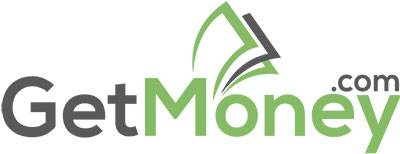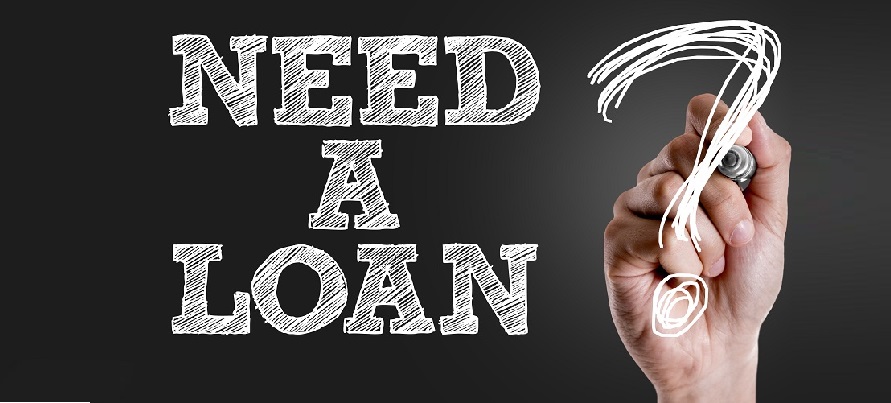1
Request A Loan
No Cost No Obligations
2
Get A Decision
It’s Fast
3
Get Your Money
If Approved
- Secure
- Simple
- No Obligations
- Fixed and Adjustable
- Competitive Rates
- No Social Security
Home Loans - Mortgages
What is a mortgage?
A mortgage by definition is a loan secured against real property or real estate of any type (commercial and residential). The requirements for getting commercial and residential mortgages differ, but that doesn’t change the meaning of the word mortgage.
When you get a mortgage it means that you are using your property as collateral for the mortgage.
What is a NQM mortgage
The NQM mortgage program is designed for borrowers who are self-employed and would benefit from alternative loan qualification methods. Instead of tax returns and pay-stubs, bank statements (personal and/or business) are used as an alternative to document a self-employed borrower’s income. In addition to bank statements, a self-employed borrower may supplement income with additional income derived from assets.
If you are self-employed and looking for a mortgage, submit a request and find out what you qualify for.
Available Mortgages
- Conventional mortgages
- Jumbo mortgages
- FHA home loans
- VA guaranteed home loans
- Fixed rate mortgages
- Adjustable rate mortgage
- NQM mortgages
Properties you can request a mortgage for
- Owner occupied
- 2nd home
- Investment property
- Single family homes
- Low-rise condo
- high-rise condos
- rural properties
Is there a difference between a home loan and a mortgage?
No, a home loan is a mortgage. When you apply for a loan to buy a house, you are getting a home loan and putting up the home as a collateral to secure the mortgage. Which means, you’ve mortgaged your home.
Different types of mortgages
There are multiple types of mortgages, i.e. conforming mortgage, jumbo mortgage, FHA loans, VA loans and etc. as shown above. They all have different qualification requirements, loan amount limits, required down-payment, eligibility guidelines, and minimum credit scores.
Except for NQM mortgages (stated income), all other mortgages require full income documentation.
Mortgage Rates
All mortgages are either a fixed-rate mortgage or an adjustable-rate mortgage. A fixed-rate mortgage has a fixed interest rate for the life of the mortgage; usually fixed for 30 or 15 years. Seldom lenders offer a custom term such a 23 or 26-year fixed mortgage (borrowers chooses the term), but this practice is not very common.
An adjustable-rate mortgage has an initial fixed interest rate for 1, 3, 5, 7 or 10 years. Which means, the initial interest rate or the rate you have on the loan documents will remain fixed for that period. For example, a 7 year fixed-rate mortgage, will have a fixed interest rate for 7 years and after the 7th year, the interest rate will change to a new interest rate based on market conditions at that time.
Adjustable rate mortgage pros and cons
The main advantage of an adjustable-rate mortgage is the lower initial monthly payments. The interest rates for adjustable-rate mortgages are lower because the initial fixed interest rate is locked for a shorter period, and the lender has less exposure to market risks.
If the current mortgage interest rates are low and the lender offers a 7-year fixed-rate mortgage, they’ll be able to charge a higher interest rate at the end of the 7 years if the rates are higher. But, if the loan is a 30 year fixed mortgage, the lender will not be able to change the low-interest rate they committed to on day 1.
Fixed rate mortgages vs. Adjustable rate mortgages
A fixed-rate mortgage is a better mortgage if you plan on living in the house for the long term, and the current interest rates are low. If you plan on moving within the next 5 years, there is no benefit in getting a 30 year fixed loan. You are better off getting a 7-year fixed mortgage to reap the benefits of lower monthly payments.
Best mortgage interest rates online
The best mortgage interest rate is the lowest interest rate the borrower qualifies for, and it’s different for every borrower. For example, if your credit score is 620, refinancing a mortgage at 80% ltv (loan to value ratio = loan amount / appraised value) you are not going to qualify for the same interest rate as a borrower with a 65% ltv and a 720 credit score.
How are mortgage interest rates determined
Mortgage rates are tied to the bond market and to determine the daily mortgage rates, lenders will add a margin to the 10 year bond yield index for that day.
Since the bond yields (rates) fluctuate daily and mortgage rates are tied to the bond yields, mortgage rates change every day, and they sometimes change multiple times in one day as the market fluctuates.
Fixed rate mortgages have a higher interest rate than adjustable rate mortgages because they lock in the lender to today’s rates and that means less interest charged if the rates go up in the future.
Selecting the best mortgage rate
There isn’t a formula for selecting the best mortgage. It has to be determined on a case by case basis and a decision between a fixed rate mortgage and an adjustable rate mortgage has to be made based on the current interest rates, borrowers credit score, and expected term of occupancy.
For the best mortgage rates
Get your current mortgage and offers reviewed to see if lower interest rates are available.
This a no obligation complimentary service.
Schedule your loan review
A complimentary service
What to consider when buying a home
The most important thing to do when buying a house is budgeting accurately. Your monthly mortgage payments is not the only thing you must be concerned with. Other expenses such as property taxes, utilities, gardening, insurance and etc. have to be accounted for when making a smart decision. We suggest you complete a free no obligation loan request to see what mortgage options are available and plan everything else around the expected monthly mortgage payment which will be single biggest expenditure.
What are the requirements for 1st time home buyers
Buying a home for the first time is very stressful. The good news is that you don’t have to stress the mortgage side of it because you can buy a home with a minimal down payment.
First time home buyer programs only require a 3% down payment. These mortgages are offered by the FHA and various private lenders. As a current or past member of the United States armed forces, you can take advantage of the VA loan program offered by the department of veterans affairs. To see what your options are, click here and complete the form.
What is a conforming mortgage
A conforming Mortgage is a mortgage that meets the guidelines set by Fannie Mae and Freddie Mac. These guidelines limit the maximum conforming mortgage loan amount for one-unit properties to $484,350 and specify the requirements a borrower must meet to qualify for a loan.
The advantages of these conforming loans include the ability to qualify for a low-interest rate mortgage with lower credit scores and they could demand less documentation. Interest rates on conforming loans can be fixed, adjustable, or interest only.
What is a jumbo or non-conforming mortgage
Any residential mortgage that exceeds the $484,350 conforming limit is a jumbo mortgage. Jumbo mortgage loans normally have a lower loan to value ratio requirement because of the risks associated with higher loan amounts.
A jumbo mortgage can have a fixed or an adjustable rate just like conforming loans.
FHA mortgages and first time home buyers
Federal Housing Administration (FHA) insures mortgages on single family homes and multifamily properties to help more people qualify for a low cost mortgage at low interest rates with minimal down-payments. It’s important to know that these low interest FHA mortgages are funded by private lending institutions and only insured by the HUD.
To qualify for an FHA mortgage, a borrower must have a minimum FICO credit score of 580 and 3.5% of the purchase price for down-payment if purchasing a house.
FHA mortgage eligibility requirements
The credit requirements for FHA mortgages are lower than traditional mortgages because the lender is insured and protected against defaults through HUD. If a property owner defaults on a FHA mortgage, FHA will pay the unpaid principal balance owed.
General requirements for FHA mortgage loans:
- Must meet standard FHA credit requirements.
- Financing up to approximately 96.5% of purchase price.
- Borrower may finance the up-front mortgage insurance premium (UFMIP) into the mortgage and will be responsible for paying an annual premium.
- Eligible properties are 1-4 unit structures for both owner and non-owner occupied properties after 1 year of being owner occupied. Multiple unit structures require the borrower to live in one of the units for at least 1 year.
- FHA mortgage limits vary in different areas.
LATEST FROM BLOG
See our latest articles, recent news and local events


